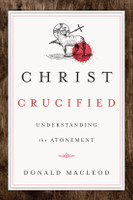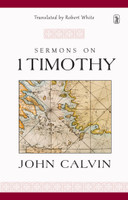Description
To call the arrest, trial, scourging and crucifixion of Jesus Christ a miscarriage of justice is true as far as it goes, but it does not go far enough. Christ’s death on the cross was not an accident but, as his resurrection attests, was accomplished according to the sovereign, loving will of God, by which sinners can be reconciled to the One who made them, and can pass by grace from death to life.
In this memorable set of sermons which date from 1557 to 1558, Calvin, chief pastor of the Genevan church, offers a sensitive reading of Matthew’s account of Christ’s passion, death and resurrection. The preacher’s focus, however, is not so much on the events themselves as on their significance, on what he calls the fruit and efficacy of Christ’s redemptive work. What, in practical terms, is the import of the Easter message for the life of faith? Calvin’s answer has vital implications not only for what we believe but for the way we live, serve, worship and pray.
Newly translated from the French of 1558 by Robert White.
‘If we seek for salvation, the name of Jesus alone teaches us that it is in him. … If we desire the gifts of the Holy Spirit, we will find them in his anointing. If we are looking for strength, we have it in his lordship…If we ask for redemption, his passion provides it. In his condemnation we have our absolution. If we want pardon for sin’s curse, that gift lies in his cross. Atonement we have in his sacrifice and cleansing in his blood. Our reconciliation was effected by his descent into hell; the mortification of our flesh lies in his burial, and newness of life in his resurrection, through which we also have the hope of immortality.’ — John Calvin
About the Author
John Calvin (1509-1564) was a theological giant of the Protestant Reformation. A contemporary of Martin Luther, he had as much influence over this period of history as his German counterpart. In 1536 he published his famous Institutes of the Christian Religion, which was a systematic presentation of the Protestant position. His writings are still cherished and relevant today.









